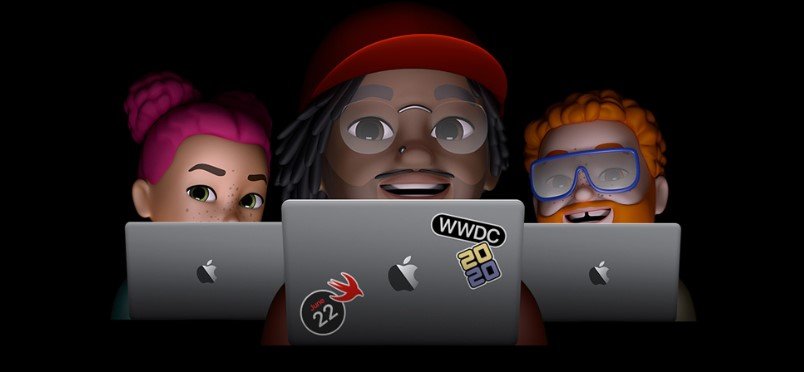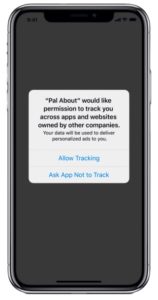The mobile industry is going to amaze us with some serious global changes. These changes are likely to be the most important in recent years. All this is connected with the recently passed annual Apple’s Worldwide Developer Conference that took place at the end of June 2020.
The conference was held online due to the ongoing pandemic. It attracted thousands of viewers as Apple introduced a ton of exciting changes and new features. This will definitely have a noticeable impact on app-first brands. One of the most interesting changes relates to the mobile app advertising market.

iOS 14 will be released in September 2020. Considering the overall popularity of the privacy trend, Apple has made the decision that app developers will no longer have access to IDFA by default with this release.
Contents
What is IDFA?
IDFA (Identifier for Advertisers) is a unique device identifier that is applied for ad attribution, retargeting, analytics, and a range of other tasks.
Now, if an app developer strives to get IDFA, he/she will have to explicitly request permission from the user (similar to push notifications). Some independent estimates show that the share of the users who will give access to IDFA will be something about 10%.
Alternative option
Alternatively, Apple has provided its own privacy-safe attribution system. However, it does not cover even a small proportion of the tasks that arise for the teams involved in mobile apps development and promotion. This means that all mobile marketing and, as a result, the mobile industry will be significantly changed. It means that all mobile marketing and, as a result, the mobile industry will change dramatically.
Here we’d like to briefly note what will exactly change and how it will affect the key mobile advertising market’s players. If you are a developer, attribution service provider, or a core advertiser, it will be interesting for you for sure. So let’s dive into details.

What Are the Key Changes and Consequences of the iOS 14 Release Related to Restrictions on Access to IDFA?
Here’s a brief summary.
 IDFA will be available only after receiving permission from the user
IDFA will be available only after receiving permission from the user
IDFA is used in mobile apps for user attribution that is the answer to the question “Where did the user come from?”
According to the iOS 14 release, every application that wants to use an advertising user ID (IDFA) will have to ask permission from each user. It will work analogically with a request to send push notifications.
Here’s how a popup for a request to use IDFA will look like:

This popup will literally ask you: “Do you let this app to track you in apps and websites from other developers?” There is a button to refuse tracking that is located below. It makes the popup visually more convenient.
As we have mentioned above, 9 out of 10 people will give up tracking, so Apple, under the pretext of concern for user privacy, is breaking the existing ad traffic attribution infrastructure. This affects everyone: ad systems, mobile developers, advertisers, and ordinary users.
 The decrease in the quality of mobile traffic attribution and the increase in the cost of attracting users
The decrease in the quality of mobile traffic attribution and the increase in the cost of attracting users
Earlier mobile developers and ad networks could use IDFA without the users’ permission, but now the situation is going to be changed in the following way:
- Mobile ad attribution services will no longer be able to use IDFA to attribute a significant portion of mobile traffic.
- It will reduce the accuracy of traffic attribution, which will greatly complicate the life of companies developing and promoting mobile applications. Increasing the cost of traffic will be the next step.
- The increase in the cost of traffic is to be expected due to the fact that with the iOS 14 release, the possibilities for accurate targeting in ad networks will become much more limited. Such effective tools as look-a-like audiences and retargeting will now become available only for a small part of users who agreed to transfer IDFA or used a relevant email/phone number during registration.
 Apple has offered its own attribution system, but it does not cover the tasks of mobile developers
Apple has offered its own attribution system, but it does not cover the tasks of mobile developers
Apple proposed its privacy-safe traffic attribution system as an alternative. The system makes it possible to send information about installations to advertising networks without explicitly revealing information about the user.
However, the capabilities of this system are severely limited and do not cover the basic needs in the field of marketing. Developers and ad systems will no longer have user-level data and this is a real problem. The data will only be in an aggregated form in the advertising cabinet. Developers will not be able to read and segment ROI in detail, link attribution data to product events.
 Implications of the changes
Implications of the changes
The implications will relate to increased user acquisition costs, accelerated consolidation of the mobile market, a hit to large ad systems, and attribution services.
It is actually difficult to predict where it will come. But the potential vectors of development after the release of iOS 14 are:
- The cost of user acquisition will increase as iOS 14 rolls out. The main factors will include lower quality attribution and limited access to ad targeting tools like look-a-like audiences, retargeting.
- Companies, providing attribution services will face difficulties. They have been recently holding a central position in the mobile advertising market. Now their positions will be changed under the onslaught of Apple.
- Large ad systems will also be hit. Facebook has already linked the changes in iOS 14 with the risk for its ad business. Small players will also have difficulties in competing with large publishers. They will lose the ability to accurately calculate ROI for advertising campaigns. Ineffective and weak marketing can be disastrous for small companies, so many will have to abandon paid channels of attraction.
Time will tell us everything. With the release of iOS 14, we should expect a lot of new and interesting things.
iOS 14 will be released in September 2020. Half of all devices will be updated to it by the end of the year. Since an app must support the new API to access IDFA, developers will lose access to IDFA immediately after the OS update.
This scenario can be considered as pessimistic or optimistic, however, the next iOS release is round the corner. Are you ready for it?





